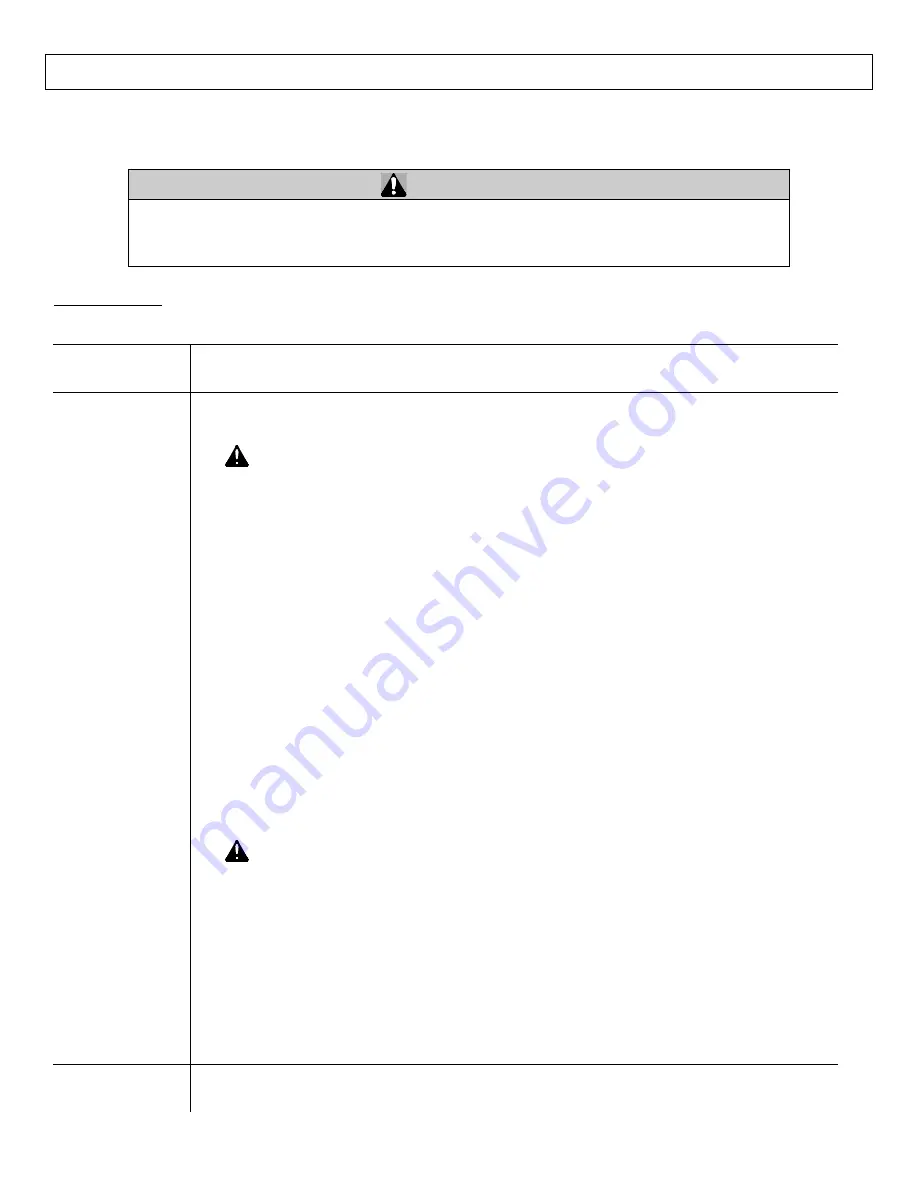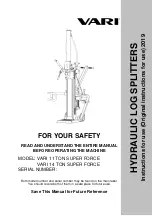
Periodic Maintenance
25
In addition to the maintenance performed with each use, periodic maintenance should also be performed
according to the following schedule.
WARNING
ALWAYS shut off the engine, disconnect the spark plug, and relieve system pressure before
cleaning, adjusting, or repairing the splitter. Relieve system pressure by moving Split Control
Lever back and forth several times.
IMPORTANT:
If a part needs replacement only use parts that meets the manufacturer’s specifications. Replacement parts that do
not meet specifications may result in a safety hazard or poor operation of the log splitter.
1. Engine
maintenance
Perform engine maintenance as specified in engine owner’s manual.
2. Hydraulic Oil
Change
Change Hydraulic Oil Annually or Every 100 Hours.
WARNING:
High fluid pressures and temperatures are developed in hydraulic log
splitters. Hydraulic fluid escaping through a pin hole sized opening can burn or puncture
skin, resulting in wounds that could cause blood poisoning, infection, disability, gangrene,
amputation, or death. Therefore, the following instructions should be heeded at all times
when inspecting or servicing the hydraulic components of the log splitter.
•
NEVER check for leaks with your hand. Leaks can be located by holding a piece of
cardboard or wood (at least two feet long) with your hand at one end and passing the
other end over the suspected area (wear eye protection). Look for discoloration of the
cardboard or wood.
•
NEVER adjust the pressure of the pump or valve.
•
If injured by escaping fluid, no matter how small the wound is, see a doctor at once. A
typical injection injury may be a small wound that does not look serious. However,
severe infection or reaction can result if proper medical treatment is not administered
immediately by a doctor who is familiar with injection injuries.
1.
Use 10wt AW32, ASLE H-150, or ISO32 oil.
2.
Relieve hydraulic system pressure by moving Split Control Lever back and forth
several times.
3.
Remove hydraulic oil dipstick.
WARNING
:
NEVER remove the hydraulic oil dipstick when the engine is running
or hot. Hot oil can escape causing severe burns. Allow the log splitter to cool
completely before removing hydraulic oil dipstick.
4.
Remove the drain plug from the hydraulic tank to drain the hydraulic oil into a 10
gallon pan.
5.
Remove suction strainer and wipe off debris with a dry cloth.
6.
Fill the hydraulic tank with wedge retracted.
7.
Dispose of used oil at an oil-recycling center. Used hydraulic oil is hazardous waste.
8.
Extend and retract wedge 5 (five) times to purge air from the system.
9.
Check hydraulic oil level and fill if necessary.
3. Spark arrestor
muffler
If the engine is equipped with a spark arrestor muffler, clean and inspect it regularly
(follow manufacturer’s service instructions).
Replace if damaged.






































